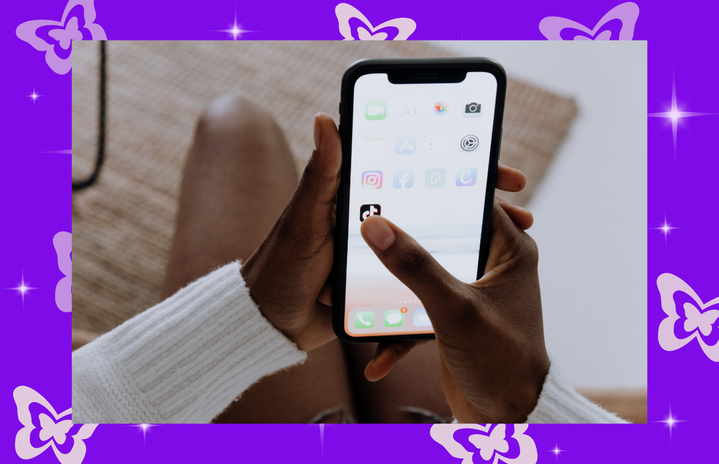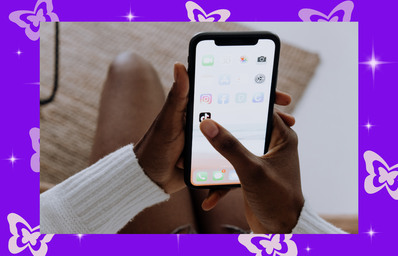As a 20-something, short-form media tends to be my go-to when I want to mindlessly watch something or just switch my brain off for a few hours.
However, sometimes it scares me to think that I spend so much time scrolling through 60-second videos for 2+hours, and I always feel guilty and embarrassed when I check the time. Why can’t I just sit down and watch a movie instead? Why is it easier to consume short-form media nowadays?
Short-form vs long-form media
Simply put, short-form media are TikTok, YouTube videos, Instagram reels, Twitter threads or basically anything that gets information across to you as quickly as possible with little thinking required from the viewer.
Long-form content is, you guessed it, longer, both in terms of form (e.g. films, newspapers, longer YouTube videos, books) and required critical thinking. Long-form content needs you to engage with it in order to understand and actually think about the message being put across.
The main difference between the two is thinking levels: short-form displays the information in accessible and digestible ways, whereas long-form content needs you to critically think and engage with it.
Why we struggle to watch long-form media
IMO, we just don’t have the attention span anymore. Now I know that seems like a simple answer, but hear me out:
In the past few years the world has been a shit-show, with disaster striking us left right and centre. As South Africans we’ve been seeing high levels of poverty, loadshedding, increased attention to Gender-Based violence, and all on top of a pandemic. We’ve been struggling.
Our brains are inadvertently taking in so much news (typically bad) all the time, and often without even looking for it. We’ve got this overload of information thrown at us from all angles, from Instagram infographics, Twitter threads, radio news and TikTok facts. We can’t seem to “switch-off” or “un-plug” from receiving information.
So how does this tie into short-form media? Well, easily enough: because we’re constantly receiving so much information, our attention spans have gotten smaller and smaller, meaning we can only consume media if there is constant information being displayed to us (otherwise we scroll and scroll and scroll until something else piques our attention for 30 seconds – rinse and repeat).
Para-social relationships
Right. Let’s move on.
Do you also like watching living-alone vlogs, or video essays, or Twitch, or TikTok, or scrolling through Instagram? Yeah, I thought so.
When we practise these habits of repeatedly engaging with the same creators we form this weird relationship with them, oftentimes thinking we would get along super well with them. If you think about it, that’s quite strange. Thinking you and Harry Styles would be besties because you watched a “flirty Harry” compilation on TikTok and now believe he would like you is a bit far-fetched (sorry).
These are strangers on the internet, sharing snippets of their lives via a curated and edited Insta feed, or perfectly edited “chill with me” vlogs, or “spend the day with me” TikToks, giving us the impression that we’re spending time with them and that they’re getting to know us just as well as we (think) we know them. In a nutshell, that’s what para-social relationships are.
The dangers of para-social relationships & a brief note on loneliness
Alice Capelle on YouTube speaks about loneliness and how these para-social relationships can both help and hinder our loneliness. Because we’ve spent the past 2 years inside, any form of company is appreciated, whether that’s your favourite Twitch streamer just chatting in an open tab, or cleaning your space alongside a “clean with me” YouTube video.
So what’s the so-called danger that para-social relationships can bring? They can enhance your loneliness and your feelings of isolation, especially if you’re living alone or in a space where you don’t feel comfortable. It feels reassuring that your favourite content creator is bagging a deal with Glossier and waking up in their dream apartment in New York while you try and escape the dread of everyday life.
Short-form content is a form of escapism, and as a generation we now turn to short-form media of people living our dream lives to help us feel comfort in our daily, routine lives. And that’s okay! Life is difficult at the moment! We’re allowed a break every now and then to experience some joy and happiness, even if it’s with a person on TikTok who you’ll never meet.
So, as we move into normalcy and start socialising again, will para-social relationships via short-form content slowly decline? Or will we still find comfort in watching someone across the continent living their best lives? Who knows, but for now, I’m going to find comfort in my para-social relationships and real relationships.

